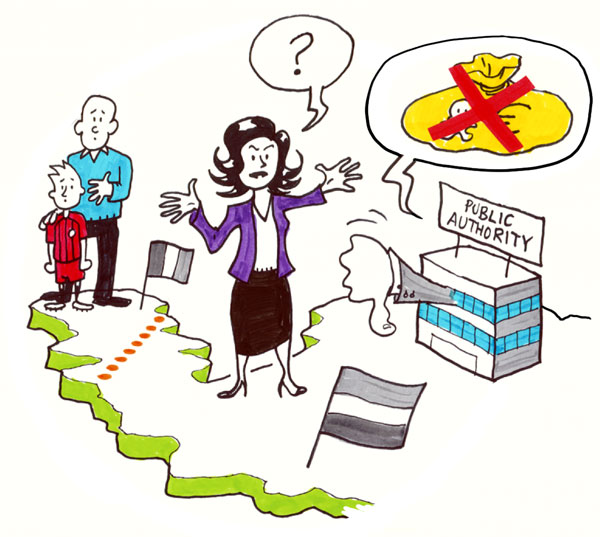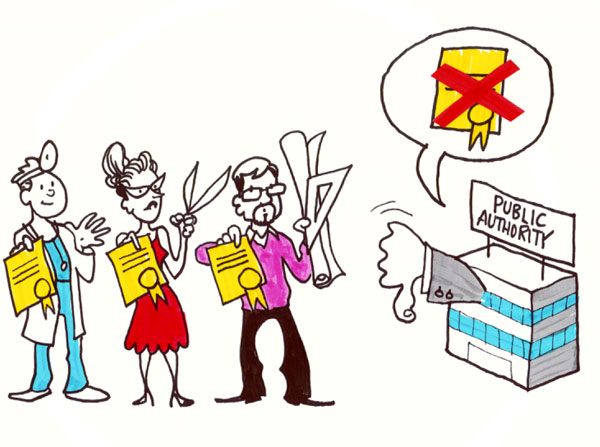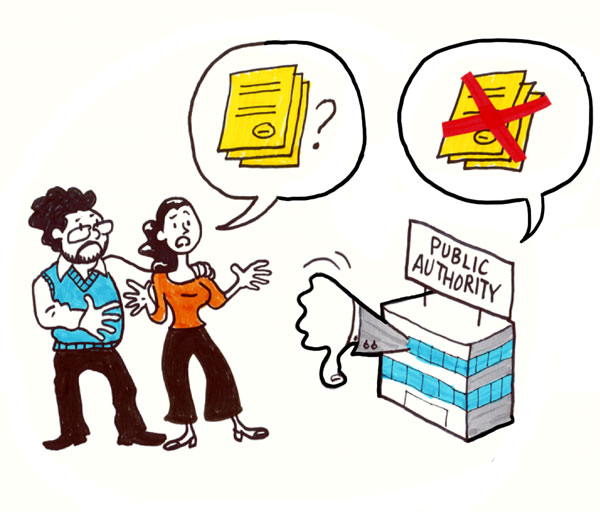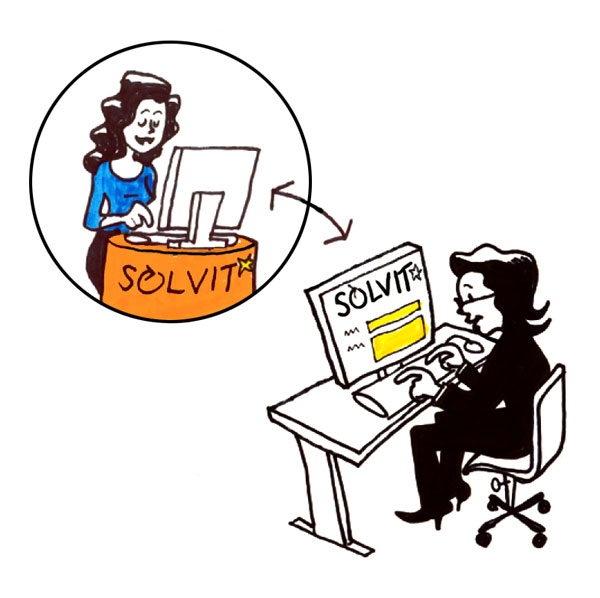Success Stories
Common problems dealt with by SOLVIT include; Social Security (illness benefit, child benefit etc…), Residency, Visa issues, and Recognition of Professional Qualifications

While these are the most common complaints SOLVIT can help with many other problems as long as three key criteria are met:
SOLVIT cases must have;
- a cross border element to the complaint,
- caused by a perceived misapplication of EU law,
- by a public authority of the host Member State
Below you will find some practical examples of SOLVIT success stories.
Social Security:

An Irish national who had been working in Italy as a teacher returns to Ireland and makes a claim to the Irish authority for social benefits.
The Irish national contacted SOLVIT Ireland with her complaint which had been ongoing for over 2 years. In order to understand the exact nature of the problem we contacted the Irish Department. They explained that they required information on the employment history in Italy to assess entitlement to benefits in Ireland. They had sent a number of requests for information to Italy but had not received a reply.
The EU Regulation on Social Security requires Member States to cooperate with each other and to exchange information when requested.
With this information we contacted the Italian SOLVIT Centre and asked them to contact the relevant Italian Authority to urge a reply.
Within a few weeks the Italian SOLVIT Centre informed us that the relevant information had been sent to the Irish Department who could then process the citizens claim in the usual way.
Solved within 3 weeks
Professional Qualifications:

Concerning a Polish occupational therapist who applied for recognition of her qualifications in Ireland. The Irish authorities refused her Polish diploma as it was not recognised by the World Federation of Occupational Therapists .
The citizen contacted the Polish SOLVIT Centre who determined that there is no obligation to be approved by this Federation under the EU Directive on Professional qualifications and they sent the case to the Irish SOLVIT Centre to look into.
We contacted the Department of Health and asked them to justify their policy of only recognising qualifications that are approved by this Federation.
Following discussions with the Department of Health, the Association of Occupational Therapists agreed to examine the application and confirmed to us that the requirement to be approved by the Federation of Occupational Therapists would be removed from their application forms and website.
The Polish national was free to submit her application for recognition.
Solved in 14 weeks due to the complexity
Visa:

A UK national living in the Philippines with his Philippine wife who had applied for a visa to travel to Ireland. The Irish Embassy refused the visa stating that the EU national must already been resident in Ireland before his wife could join him here. The Embassy also sought excessive documentation such as evidence of employment, proof for funds and evidence of the relationship history.
The UK SOLVIT Centre considered the response of the Irish Embassy to be a breach of the EU Directive on free movement for EU nationals and their non-EU family members.
The Irish SOLVIT Centre contacted the Department of Justice who contacted the Irish Embassy in the Philippines. The Department of Justice confirmed that under the EU Directive, the Authorities could only request proof of identity, proof of relationship and proof that the couple were travelling together or that the Philippine national was going to join her EU spouse in Ireland.
The visa had in fact been approved but the Department of Justice took the opportunity to clarify the rules for the Irish Embassy in dealing with future similar cases.
Solved within 6 weeks
Business case:

A patent lawyer based in Liechtenstein was refused permission to register a European patent by the Irish Authority because the address in Liechtenstein was outside the EU. In the usual way, the company contacted the Liechtenstein SOLVIT Centre who contacted the Irish SOLVIT Centre. We then contacted the Patent Office in Ireland and pointed out that their decision appeared to be incompatible with the European Economic Agreement. Although Liechtenstein is not an EU country, it is a member of the European Economic Area (EEA state) and therefore part of the European patent system. The Irish Patents Office sought legal advice on the matter and following that, they wrote to the company confirming that the Liechtenstein address could be registered. Due to this SOLVIT case, the Irish Patent office amended Irish national legislation to align Irish Patent rules with the European Economic Agreement.
Rules changed within 3 weeks but legislation change took over 1 year